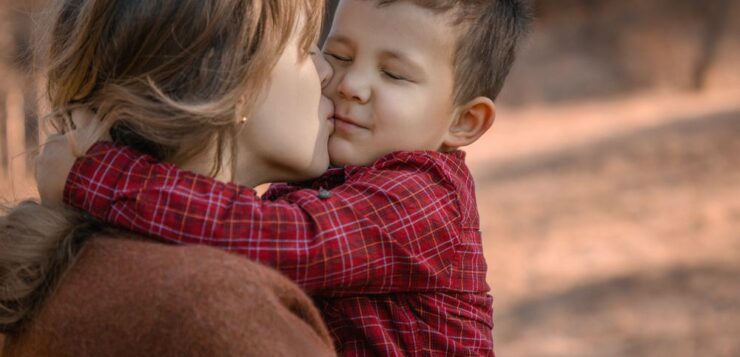Preparing our children for the road should be our main educational purpose, without avoiding potholes or setbacks
I was lucky to have parents who instilled in me the value of effort and self-improvement. Who always believed that the best thing they could do for me and my sisters was not to flatten the way for us, to let us stumble and face the consequences of our decisions. Who trusted that we would be able to achieve everything that we set out to do thanks to our work and effort.
I remember how when I was little I had a hard time understanding why other parents made things too easy for their children. Why did they solve their problems or give them everything they asked for. Friends who did not have to follow rules or respect schedules, who had no tasks or obligations to fulfill.
More information
Some years later, and especially since I was a mother, I am eternally grateful to them and I appreciate the courage with which they were able to educate me. Undoubtedly, it would have been much easier for them to give me the solution rather than make me think, choose for me knowing that they were going to be right, give me everything I asked for every time I didn’t stop crying, pave the future so as not to see me suffer.
As parents we want to offer our children the best, but sometimes we sin in doing it too much. Offering them things that they do not really need, asking them things that they are not yet ready to respond to, indulging in behaviors that are harmful to their development.
Overprotecting them and hindering them from developing autonomously, without letting them be the true protagonists of their lives, making them grow dependent and without letting them get frustrated.
We awkwardly adopt a model of hyperpaternity, a term coined by journalist and writer Eva Millet. An educational style where we erroneously anticipate and excessively meet the needs of our children or young people, where we offer them disproportionate attention, where our level of demand is inadequate and below their possibilities.
A parenting phenomenon where protection, one of the vital functions of education, is confused with hyperprotection. An excessive, harmful, disabling protection. Which leads us to educate us in fragility, in dependence, in the impossibility of facing our own fears. Invalidating autonomy, the ability to choose and confusing overcompensation with respect.
We overwhelm our children and young people with too many toys, activities, options or information, we make them live at an inadequate speed without leaving them time to explore, to get bored, to grow calmly. We look for solutions to the problems that they are capable of solving, we mismanage their time making them grow at an adult pace.
We provide them with all the comforts, we praise in access everything they do, making them believe that they are excellent. We prevent them from getting frustrated, having doubts, and developing the necessary skills to build good self-esteem and self-concept.
Parents with an excess of parental zeal, who seek to have perfect children, who suffer every time their little ones stumble, who live pending the demands of their children. Who do not believe in the need to educate in values as essential as effort, teamwork or perseverance.
Turning them into children and young people who get frustrated when they do not stand out, who do not know how to win or lose and have a tendency to avoid responsibilities. Impatient, irritable and moody when they don’t get what they want, fragile and not very autonomous, who blame others for their mistakes. Children and young people with a demanding personality who can have dictatorial or omnipotence behaviors.
Sometimes behind this excessive education we find frustrated yearnings for ourselves that we seek for our children to achieve or do things that we were not able to achieve or did not dare to do.
Preparing our children for the road should be our main educational purpose, without avoiding potholes or setbacks, letting them know that sometimes life does not attend to reason. Educate from common sense, empathy and trust, seeking a balance between reason and emotion.
Giving them the necessary tools to grow free and happy with large doses of hugs, kisses and understanding. With words that help to understand, that facilitate being surprised by life on a daily basis.
How can we train our children for life?
- Explaining to them that life is full of shocks, difficult and unfair situations that they will have to face.
- Offering them our unconditional support, our trust, our time so that they feel protected, understood and loved.
- Helping them to look at life with an objective perspective of things, with optimism, believing in work and effort as the best allies.
- Knowing that less is always more, let’s give them only what they really need.
- By ceasing to constantly control them, empowering them to solve their problems autonomously, allowing them to make mistakes and bear the consequences of their decisions.
- Respecting the rhythms to learn, tastes and needs, the way of understanding everything that surrounds them.
- Understanding and validating everything they feel, helping them to manage emotions without fear, trusting in their abilities.
- Being critical when the attitude is not correct, when they do not assume their responsibilities or blame others for their mistakes.
- Establishing clear and agreed limits that provide security.
- Training them in all the personal skills that we consider essential to express life, to achieve emotional well-being, transmitting important values such as respect, tolerance or commitment.
Our children need moms and dads who accompany them from the tranquility and good humor. That they do not want perfect children but happy children, who empower with words that encourage them to be brave.
You can follow De mamas & de papas in Facebook, Twitter or subscribe here to the Newsletter.





